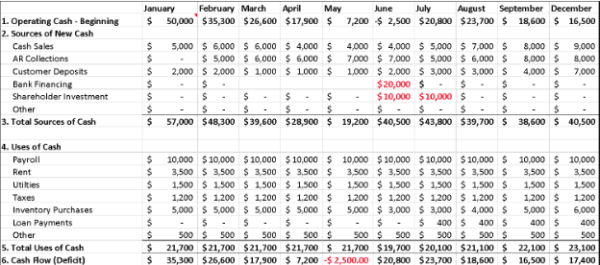
Large data sets are also likely to come with anomalies – acquisitions, for example, may bring one-off cash flow spikes which will not need to be included in the data set for forecasting purposes. For one thing, it is essential to base the forecast on high quality data – so it may be necessary to carry out data cleansing to remove any defects. Data management skillsĭata is at the heart of the cash forecast, so data management skills are also essential.

Whether the company is using a dedicated cash forecasting solution or a spreadsheet-based system to aggregate data, it is important to have the necessary interfaces and processes in place to bring all of the information together. Sourcing the right information from the right places is only part of the challenge – forecasters also need to be able to collate the data effectively. Where the latter is concerned, an effective forecaster will need to have robust technical knowledge in order to obtain the required data from the relevant systems. These can broadly be divided into the information provided by subsidiaries, and information that is sourced directly from a variety of systems, such as the company’s Enterprise Resource Planning (ERP) system, Treasury Management System, bank portals and electronic bank statements. Technical knowledgeĪ cash forecast will typically be based on inputs from a variety of different sources. This means understanding the company’s strategic goals its sales model and the nature of its customer base, and its strengths and weaknesses compared to its competitors. Whatever the objectives, the forecaster needs to have a clear understanding of the bigger picture so they can choose the most appropriate forecasting approach. Other goals may include supporting mergers and acquisitions or providing more visibility over covenant levels at key reporting dates.

For example, the company’s overriding goal might be to support short-term liquidity planning, or to minimise the need for external funding. Different companies will approach forecasting differently, based on their business needs – so it’s essential for forecasters to understand why forecasting matters to the organisation, and which business goals they are looking to achieve. Armed with a clear understanding of the business climate, they understand that they can play an active role in helping their companies increase market share and improve the company’s performance.Ĭash flow forecasting is no exception. Treasurers and finance professionals are increasingly conscious of the need for greater commercial acumen. While forecasting skills include many different components, the following four attributes are among the most important: Business understanding Four key skills for effective forecasting But it’s also about having commercial acumen and being able to communicate effectively with others across the organisation. Naturally, it’s important to have top-notch technical expertise and the ability to model data effectively.

But forecasting isn’t a single skill, so much as a constellation of different skills.

In order to build a successful forecast – in other words, one that is timely, accurate and adds value to the organisation – treasurers and finance professionals need to have the right skillset. Indeed, 64% of respondents to AFP’s 2017 Strategic Role of Treasury Survey cited cash management and forecasting as a key area of focus over the next three years. In practice, cash forecasting can take up the lion’s share of attention within the treasury or finance team. So, increasingly, attention is being paid to the skills that make an effective forecaster. The forecast can also underpin a range of key financial decisions, from mergers and acquisitions to investment planning. Cash flow forecasting plays a crucial role in supporting a company’s stability by ensuring the company has enough cash available to cover outgoing payments.


 0 kommentar(er)
0 kommentar(er)
